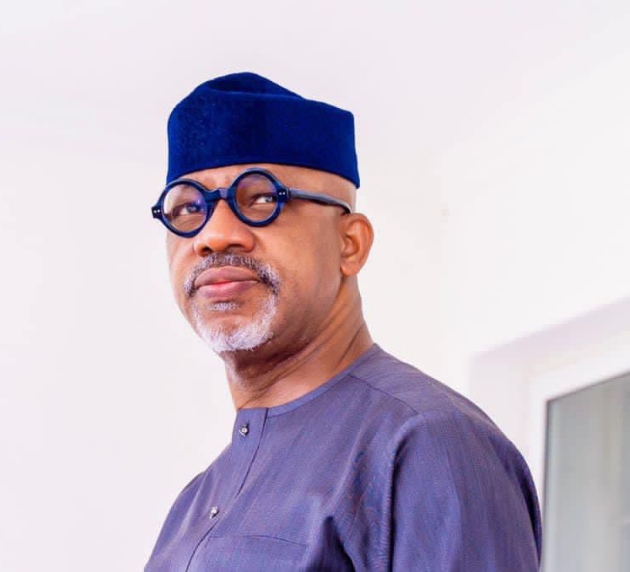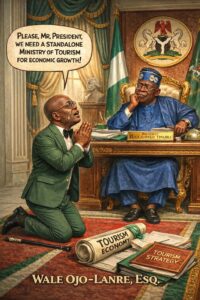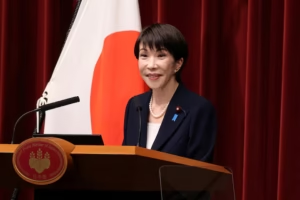
Clearly, Governor Dapo Abiodun is still basking in the euphoria of his March 18 governorship election victory, where he was declared governor-elect, and similarly, his cronies must still be head in the cloud, savoring the Hennessey and Whiskey which he promised them hours before the election.
Howbeit, it is not yet Uhuru for the governor-elect, as it is now clear he will still have his day at the tribunal to prove that his victory was earned, and the process through which INEC declared him winner did not stand logic in the head.
This is because some political parties that participated in the election have already filed a petition at the tribunal, claiming that the election was marred by irregularities and that the results declared by INEC did not reflect the will of the people.
More particularly, there have also been claims that INEC violated the ‘Margin of Lead Principle’ provided for in Sections 26 and 53 of the Electoral Act to declare Abiodun the winner.
The ‘Margin of Lead Principle’ provides that a re-run election should be declared if the margin of victory in an election is lower than the canceled votes.
In this case, Abiodun was declared the winner, with a margin of lead of 13,912, where he polled 276,395 and his closest rival, Ladi Adebutu of PDP polled 262,383. The number of void votes was 33,750.
These claims, coupled with allegations of irregularities, ballot box snatching, and other electoral infractions have all contributed to the argument why the electoral process remains questionable.
Dapo Abiodun’s Slim Margin of Victory
A careful perusal of Abiodun’s outing on the ballot from 2019 when he first contested and won the governorship seat and now in 2023, it becomes clear that his popularity continues to dwindle with each outing.
As a first-time candidate for governor of Ogun State in 2019, Abiodun’s margin of victory was 19,517 votes with which he defeated Adekunle Akinlade of the Allied People’s Movement (APM). By 2023, his margin of victory had been reduced to 5,605.
It becomes clear that Abiodun is not popular in Ogun State. Abiodun’s margin of victory has steadily decreased in the intervening four years. What the numbers suggest is that there is growing dissatisfaction with Abiodun, as fewer people are voting for him each time.
Former Ekiti State Governor Ayo Fayose while commenting on the state and house of assembly election during a recent interview on Arise TV casually remarked that governors who were returned elected with 20,000 or fewer votes should be declared losers by INEC.
Fayose believes that the fact that some governors only won by a narrow margin, despite having access to all the state’s resources, was a sign that the people rejected their rule. This indicates that the people were not satisfied with the progress they made during their first four years in office.
Due to Fayose’s reputation for talking bluntly, this statement appears like a wisecrack. Nevertheless, it contains some reality checks for officeholders and politicians.
A key lesson in politics is to build bridges, not walls. However, Abiodun’s overinflated sense of self-importance prevented him from seeing beyond his nose. When he and his cronies complain that certain figures in Ogun politics, including Otunba Gbenga Daniel, have betrayed them, it becomes laughable.
For someone Abiodun once claimed does not have a political structure in Ogun State, how can he now be accusing the same person of hurting his vote in his region if he was truly not politically relevant?
Rather than build relationships, Abiodun and his cronies have taken a more combative stance. This makes it difficult for them to progress toward their political goals. This has led to divisiveness in Ogun State’s political landscape.
When Senator Ibikunle Amosun was Governor of Ogun State, for seven and half years, Abiodun was his main man. However, the former didn’t consider the latter a worthy successor.
As a result, Abiodun parted with SIA. Abiodun at the time approached Otunba Gbenga Daniel to support his ambition, which the former obliged him. Easily so, because Abiodun appeared to be a lesser evil than SIA, who supported a candidate as an extension of his reign in Ogun State. Those who understand how cruel SIA was to OGD would understand why OGD supported Abiodun at the time.
OGD worked for Abiodun in 2019, even though there was no formal agreement between them. That was notwithstanding the fact that OGD was in PDP at the time.
Fast forward to when 2023 politics were just starting, OGD studied the tide in his then party, PDP, and understood the southwest was not at a vantage point to benefit from the party. He left with his political disciples and joined APC.
OGD approached Governor Dapo Abiodun to inform him of his intention to run for the Senate seat in Ogun East, which was natural since Abiodun is a party leader. However, Abiodun stated that he would negotiate for an ambassadorial appointment for OGD in Abuja; which was clearly not in his purview to do.
OGD being the experienced and calculated politician that he is, went on to secure the senatorial ticket without Abiodun’s blessings. That was OGD’s undoing. For someone, you once enjoyed his support and navigated the same terrain you now walk on. Abiodun saw OGD’s actions as betrayal and disrespect, and he would not support him.
During the campaign, Abiodun warned party members not to attend OGD’s rally. It was a herculean task securing some venues in Ogun East for the rally because Abiodun had instructed local government chairmen to deny OGD venues. Thanks to goodwill, OGD managed to overcome the hurdles.
It is on record that Governor Dapo Abiodun never attended any of OGD’s Mega Rally in the Ogun East senatorial district throughout his campaign.
Still, OGD called Abidoun to inform him of his need to pay attention to Ogun East, which happens to be a hotbed for the election, as it is the same base as Abiodun’s arch-rival Ladi Adebutu. From the election results, it was clear Adebutu had a hold on that base and was more grassroots than Abiodun.
Abiodun was the architect of his own misfortune. And it is clear, for he to suffer defeat in his hometown, Iperu.
OGD’s constant invitation to Abiodun was to ride on OGD’s popularity in the district to reach out to people. But clearly, Abiodun had other plans. Immaterial plans, I must add, which translated into him losing his ward, his local government, and his senatorial zone.
Clearly, he is yet to learn vital lessons.
I wish him well in defending his electoral victory at the tribunal.








